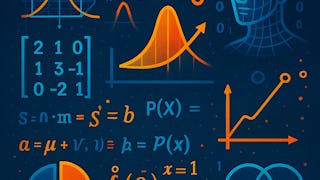Computational Logic
Most popular
 Status: Free TrialFree TrialV
Status: Free TrialFree TrialVVanderbilt University
Course
 Status: Free TrialFree TrialD
Status: Free TrialFree TrialDDuke University
Specialization
 Status: Free TrialFree TrialU
Status: Free TrialFree TrialUUniversity of California San Diego
Specialization
 Status: Free TrialFree TrialU
Status: Free TrialFree TrialUUniversity of California San Diego
Course
Trending now
 Status: Free TrialFree Trial
Status: Free TrialFree TrialSpecialization
 Status: Free TrialFree TrialB
Status: Free TrialFree TrialBBirla Institute of Technology & Science, Pilani
Specialization
 Status: Free TrialFree TrialU
Status: Free TrialFree TrialUUniversity of California San Diego
Specialization
 Status: Free TrialFree Trial
Status: Free TrialFree TrialSpecialization
New releases
 Status: Free TrialFree TrialB
Status: Free TrialFree TrialBBirla Institute of Technology & Science, Pilani
Specialization
 Status: Free TrialFree TrialB
Status: Free TrialFree TrialBBirla Institute of Technology & Science, Pilani
Course
 Status: Free TrialFree Trial
Status: Free TrialFree TrialCourse
 Status: Free TrialFree Trial
Status: Free TrialFree TrialSpecialization
Filter by
SubjectRequired *
LanguageRequired *
The language used throughout the course, in both instruction and assessments.
Learning ProductRequired *
LevelRequired *
DurationRequired *
SubtitlesRequired *
EducatorRequired *
Results for "computational logic"
 Status: NewNewStatus: Free TrialFree TrialB
Status: NewNewStatus: Free TrialFree TrialBBirla Institute of Technology & Science, Pilani
Skills you'll gain: Integral Calculus, Engineering Calculations, Data Analysis, Probability & Statistics, Engineering Analysis, Computational Logic, Statistical Analysis, Linear Algebra, Logical Reasoning, Deductive Reasoning, Mathematical Modeling, Trigonometry, Analytics, Bayesian Statistics, Statistical Modeling, Artificial Intelligence and Machine Learning (AI/ML), Statistical Inference, Theoretical Computer Science, Programming Principles, Descriptive Analytics
4.6·Rating, 4.6 out of 5 stars156 reviewsBeginner · Specialization · 3 - 6 Months
 Status: Free TrialFree TrialD
Status: Free TrialFree TrialDDuke University
Skills you'll gain: Deductive Reasoning, Critical Thinking, Logical Reasoning, Computational Logic, Analysis, Probability, Sampling (Statistics), Persuasive Communication, Sample Size Determination, Writing, Case Studies, Mathematical Modeling, Scientific Methods, Oral Expression, Correlation Analysis, Communication, Interpersonal Communications, Business Communication, Interactive Learning
4.6·Rating, 4.6 out of 5 stars3.6K reviewsBeginner · Specialization · 3 - 6 Months
 Status: Free TrialFree TrialU
Status: Free TrialFree TrialUUniversity of California San Diego
Skills you'll gain: Graph Theory, Logical Reasoning, Cryptographic Protocols, Combinatorics, Computational Logic, Deductive Reasoning, Cryptography, Probability, Key Management, Computational Thinking, Encryption, Probability Distribution, Network Analysis, Public Key Cryptography Standards (PKCS), Theoretical Computer Science, Bayesian Statistics, Python Programming, Data Structures, Algorithms, Arithmetic
4.5·Rating, 4.5 out of 5 stars3.7K reviewsBeginner · Specialization · 3 - 6 Months
 Status: PreviewPreviewU
Status: PreviewPreviewUUniversity of Leeds
Skills you'll gain: Logical Reasoning, Computational Logic, Computational Thinking, Algorithms, Theoretical Computer Science, Artificial Intelligence, Cryptography, Graph Theory
4.6·Rating, 4.6 out of 5 stars30 reviewsBeginner · Course · 1 - 4 Weeks
 Status: NewNewStatus: Free TrialFree TrialB
Status: NewNewStatus: Free TrialFree TrialBBirla Institute of Technology & Science, Pilani
Skills you'll gain: Computational Logic, Logical Reasoning, Deductive Reasoning, Analytical Skills, Theoretical Computer Science, Computational Thinking, Computer Science, Data Analysis, Computer Programming, Verification And Validation, Algorithms, Program Development, Software Development, Machine Learning
Beginner · Course · 1 - 3 Months
 Status: PreviewPreviewS
Status: PreviewPreviewSStanford University
Skills you'll gain: Logical Reasoning, Computational Logic, Deductive Reasoning, Computational Thinking, Problem Solving, Business Logic, Complex Problem Solving, Decision Making
4.4·Rating, 4.4 out of 5 stars652 reviewsIntermediate · Course · 1 - 3 Months
What brings you to Coursera today?
 Status: PreviewPreviewU
Status: PreviewPreviewUUniversity of Illinois Urbana-Champaign
Skills you'll gain: Computational Logic, Application Specific Integrated Circuits, Theoretical Computer Science, Data Structures, Verification And Validation, Computer Architecture, Systems Design, Algorithms, Computer Engineering, Mathematical Software, Design Software, Computer Programming Tools, Debugging, Digital Design, Software Development Tools
4.7·Rating, 4.7 out of 5 stars554 reviewsIntermediate · Course · 1 - 3 Months
 Status: Free TrialFree Trial
Status: Free TrialFree TrialSkills you'll gain: Field-Programmable Gate Array (FPGA), Application Specific Integrated Circuits, Computational Logic, Computer Architecture, Hardware Design, Electronics Engineering, Electronics, Programmable Logic Controllers, Electronic Systems, Semiconductors, Electronic Components, Data Storage, Data Storage Technologies
4.6·Rating, 4.6 out of 5 stars106 reviewsIntermediate · Course · 1 - 4 Weeks
 Status: Free TrialFree Trial
Status: Free TrialFree TrialSkills you'll gain: Object Oriented Programming (OOP), Programming Principles, Computer Programming, Scripting Languages, Data Import/Export, Data Structures, Python Programming, Scripting, Computational Logic, Computer Science, File Management
4.5·Rating, 4.5 out of 5 stars475 reviewsBeginner · Specialization · 3 - 6 Months
 Status: Free TrialFree TrialU
Status: Free TrialFree TrialUUniversity of Colorado Boulder
Skills you'll gain: Verification And Validation, System Design and Implementation, Technical Design, Computational Logic, Embedded Systems, Hardware Architecture, Simulations, Functional Testing, Debugging
4.4·Rating, 4.4 out of 5 stars609 reviewsIntermediate · Course · 1 - 4 Weeks
 Status: Free TrialFree Trial
Status: Free TrialFree TrialSkills you'll gain: Field-Programmable Gate Array (FPGA), Electronics, Hardware Design, Application Specific Integrated Circuits, Electronics Engineering, Serial Peripheral Interface, Computational Logic, Electrical Engineering, Computer Architecture, Schematic Diagrams, Semiconductors, Electronic Hardware, Electronic Components, Internet Of Things, Embedded Systems, Programmable Logic Controllers, Low Voltage, Electronic Systems, Control Systems, Computer Engineering
4.5·Rating, 4.5 out of 5 stars136 reviewsIntermediate · Specialization · 3 - 6 Months
 Status: NewNewStatus: Free TrialFree Trial
Status: NewNewStatus: Free TrialFree TrialSkills you'll gain: Pandas (Python Package), NumPy, Data Manipulation, Data Wrangling, Package and Software Management, Data Analysis, Data Transformation, Unstructured Data, JSON, Object Oriented Programming (OOP), Data Science, Python Programming, Computer Programming, Programming Principles, Data Import/Export, Software Design, Data Validation, Mathematical Software, Computational Logic, Data Structures
Beginner · Specialization · 3 - 6 Months







